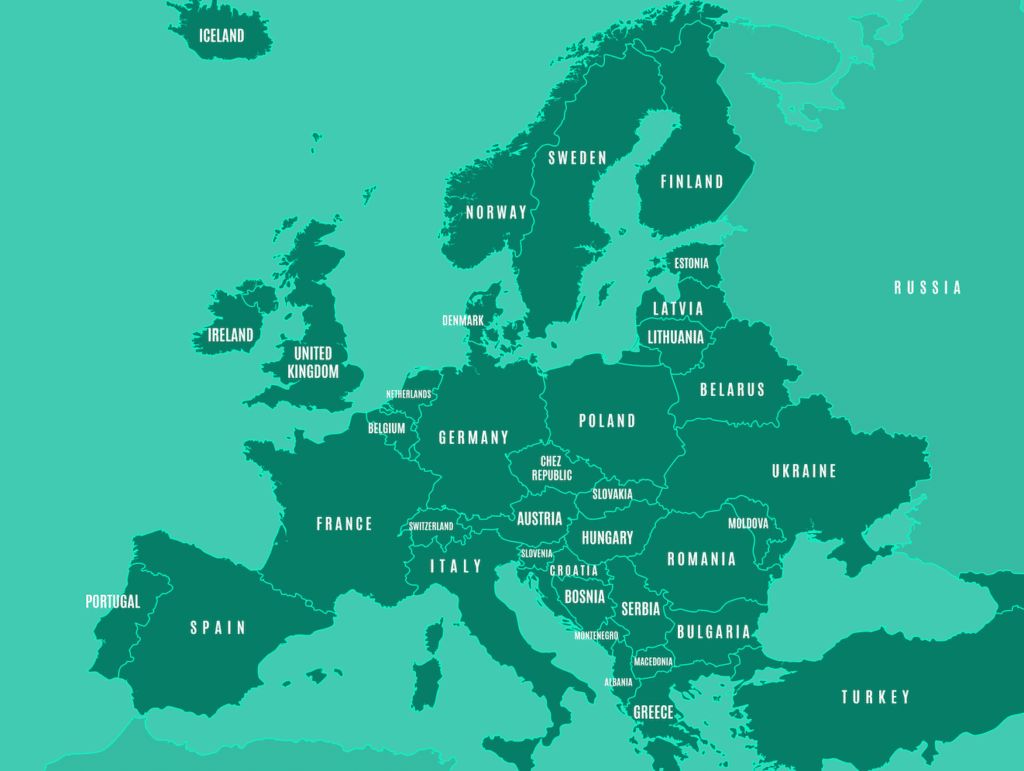Marketing Packages
We offer first-hand marketing advice for clinics and physicians.
It is based on distinct modules
STRATEGY MODULE
Establishing a Successful Positioning and Marketing Strategy
“As a medical doctor, I had no idea how to showcase my expertise. The DeBuren Group made it simple to understand and achievable within just a few days.“
Dr F. O.,Cosmetic Surgeon, Belgium

In order for you to stand out, we will act on the following:
- Differentiating your clinic from the mass of providers
- Positioning:
- Country and clinic positioning: How should you position your offer? What do you provide that others don’t?
- Pricing strategy: Identifying where price increases are possible and how to communicate about your offer
- Level of service positioning: determining suitable services
- Positioning:
-
- Strategy:
- Define where, how and with which budget to focus marketing efforts: across which channels (online and offline) to highlight your strengths (e.g., a follow-up in Switzerland)
- Strategy:
-
- Tactics (concrete marketing actions; see more details below on “tactical modules”)
- Focus on developing a perfect patient journey review: checking every step to ensure an «at-home» feeling
- Consider cultural differences at each stage: offering insights on managing cultural differences effectively
- Get new agency partnerships: attract and retain partnerships with agencies. How to negotiate with them
- Preventing complications and their consequences: how to prevent crisis and to manage one, once it happened
- Tactics (concrete marketing actions; see more details below on “tactical modules”)
Practical case
Philippe is a skilled cosmetic surgeon with remarkable medical expertise and a deep understanding of diverse languages and cultural differences – rare qualities in his field that make him an ideal candidate for medical tourism. However, despite these strengths, he struggled to grow his practice.
We discovered that his patients weren’t fully aware of his exceptional qualifications, as the tools he used didn’t effectively showcase his expertise. Additionally, a few negative reviews from dissatisfied patients went unaddressed, and he lacked a solid strategy to ensure patient satisfaction, boost word-of-mouth referrals, and generate positive reviews.
We crafted a credible marketing strategy that perfectly aligned with his expertise and the extensive range of services he offered to international patients. Within just a few months, his patient numbers skyrocketed.
TACTICAL MODULES
Practical Steps to Implement Your Marketing Strategy
Module 1
Transforming the Western European Patient Experience
“I now understand that medical quality is essential, but it’s not enough. Patients will also judge our hospital on aspects I completely overlooked. I wish I had known this 20 years ago—it would have saved me so much time and gained us so many more patients.”
Dr F. O.,Cosmetic Surgeon, Istanbul

Ensure a Smooth Patient Experience from A to Z
Medical tourism is a chain of events that begins when the patient first hears about you and continues years after their surgery at your hospital. In between, dozens of steps can either go right or wrong. In between, dozens of steps can either go right or wrong. While some of these steps are beyond your control (e.g., whether the flight is on time), we’ll ensure that what you can control goes right.
This module is illustrated with a lot of real practical cases from our experience.
We’ll Review All Processes Involving the Patient:
- Who Should Be in Charge of the Patient?
Learn one of the most important rules of medical tourism
-
First Contact with the Patient:
Should it be by phone? By email? Both? Is Telemedicine a good idea? Does it depend on the culture? (Spoiler: Yes!) How often should we follow up? -
How to Prepare the Patient for What’s Going to Happen?
-
How to Manage Steps in the Patient’s Country?
-
Does the Approach Need to Be Adapted to the Patient’s Country of Origin? (Spoiler: Absolutely!)
-
Introduction to Cultural Differences (for more, see the specific module):
What do your patients expect in terms of time, money, hierarchy, organizational skills vs. flexibility? How should you manage program changes? How should you manage the family? How do patients express dissatisfaction differently depending on their country of origin? With which cultures should you be direct, and with which should you invest time in developing the relationship? -
What Are the Main Stress Factors for Western European Patients?
-
How to Manage Various Steps Involving Different People During the Patient’s Stay:
From non-medical aspects like transfers or hotel arrangements to 100% medical aspects like surgery and the hospital stay. How to manage doctors? -
How Should You Organize and Manage the Postoperative Steps in Your Country and the Patient’s?
- Typical Mistakes That Can Ruin Your Success Once the Patient Has Left
Practical Case: If you know all the answers, you don’t need us…
Jonas is a German patient planning to come to your hospital for a cosmetic surgery procedure. Everything is organized—he has booked his flight and already paid for a hotel. Unfortunately, you’ve just learned that the surgeon is no longer available, but you’ve found a replacement. How should you communicate this to him? Should you call him while he is still in Germany? Who in your hospital should make the call? If he doesn’t answer, should you send an email or call again? What should you do when he arrives at the airport? On the day of the surgery? Should you offer any compensation? Should you postpone the surgery? What are the risks if you say nothing? And if something goes wrong, how much could it cost your hospital in terms of money and reputation?
And what if Jonas isn’t German but French? Or English? Does that change your approach?
For future patients, should you take measures to prevent such situations? What are the consequences of prevention in terms of costs and organization, and is it worth the hassle?
Module 2
Adapting to Cultural Differences in Western Europe
“With this training, I discovered the incredible complexity of cultural differences in Western Europe. A translator is not enough; you really need to understand the patient’s culture. This training has allowed me to prevent many communication problems.“
Dr A.S., Dentist, Istanbul

Optimizing Your Hospital’s Processes for Cultural Differences
Managing cultural differences is the biggest challenge in medical tourism, often leading to patient dissatisfaction that may not be immediately recognized as a cultural issue.To deliver outstanding care and meet patient expectations, it’s essential to understand and adapt to the values of different Western European patients. Here’s how we can help:
Key Areas to Enhance Patient Satisfaction We Will Review:
- Money Matters: When should you ask a patient to pay, and with which cultures should you be more cautious to avoid losing the patient? How should you respond if a patient refuses to pay or claims the price differs from what was agreed upon?
- Punctuality: In some cultures, arriving even one minute early is seen as disrespectful and can harm trust, while in others, being 20 minutes late is acceptable. We’ll identify which patients value strict punctuality and how to manage those with a more flexible view of time.
- Flexibility vs. Structure: Patients vary in their preference for either a structured process or a flexible approach. Discover which cultures favor each and adapt your processes accordingly to reduce stress and enhance outcomes.
- Polychronic (multitasking) vs. Monochronic (one task at a time) Cultures: Is it acceptable to answer your phone while talking to a Western European patient or to speak with a colleague while adjusting a crown? In which cultures might this be perceived as disrespectful, and where might it be seen as a good sign?
- Respect for Hierarchy: Some patients show high respect for the physician’s authority, while others prefer a collaborative, non-paternalistic approach. This distinction is a critical factor in navigating cultural differences successfully.
- Family Involvement: The role of family in decision-making varies; some patients rely on family input, while others prefer to decide independently. Recognizing these preferences can lead to better outcomes.
- Handling Complaints: Patients express dissatisfaction differently based on culture—some are direct, others reserved. A culturally sensitive approach can prevent issues from escalating.
- Building Trust: Some cultures value building a personal relationship, while others prefer direct communication. Adapting to these preferences can enhance trust and improve the patient experience.
By understanding and adapting to these cultural differences, your hospital can provide a more personalized, satisfying experience that meets the diverse needs of Western European patients
Practical Case: If you know all the answers, you don’t need us…
Your patient, Julia, left and all went perfectly. The patient even confirmed it to the surgeon until…
…your partner in the patient’s country calls you after 3 days. He is very concerned as he has just discovered a bad review on Google from the patient. Basically, Julia complains about the organisation of the appointments, the waiting time, the surgeon being constantly on the phone during consultations and the food at the hospital that was a joke. She also mentions waiting too long at the airport with people unable to communicate her clearly what were the next steps and a noisy hotel room.
How can this even be possible? What makes a patient being positive with the surgeon act so negatively once she has returned home?
How can you prevent it? How can you identify these problems on site without waiting for a bad review to appear? How can you correct it once it is there? Which member of the team should you train? the doctors? Non-medical staff? Is it worth the effort? Should you prepare the patient to some big cultural differences.
Module 3
Time, Team and Partners Management in Medical Tourism
“I was not motivated to invest time and energy in such a training. I was feeling overwhelmed with tasks, so there was no way I could take time to do this. It appears I was wrong, and I have now a much better satisfaction rate with my European patients“
Dr S.V., Ophthalmologist, Budapest

Maximise Efficiency and Revenue with Expert Team Training on Managing Western European Patients
Our training programs are designed to help your team save time, increase revenue, and enhance overall efficiency when working with Western European patients. We provide comprehensive guidance on organising your staff, improving medical and non-medical services, and forming strategic partnerships.
- Team Organisation: Learn how to structure your team for optimal performance with Western European patients. Understand which organisational approaches are valued by patients from different countries, ensuring your team delivers top-notch service. Learn when to hire international people. Is their language skill enough? (spoiler: no!)
- Medical and Non-Medical Services: Discover what sets your medical services apart and how to enhance your non-medical offerings, such as transfers, hotel arrangements, and translation services, to meet the expectations of Western European patients. Is the doctor the only important person? (spoiler: not at all!).
- Effective Communication: Timing and mode of communication are crucial. Learn how quickly you should respond to emails, and which cultures prefer written communication versus phone or face-to-face interactions.
- Strategic Partnering: Determine the best approach for partnering, whether through a local office, remote service, or local partners. We’ll help you find the right partners in Western Europe and avoid common pitfalls, ensuring your business thrives.
- Commission and Financial Strategies: Explore the financial aspects of medical tourism, including how to increase your profits while enhancing patient experiences. Learn to adapt your commission structures to suit different markets—knowing exactly how much is enough and how much is too much.
Case Study: Unlocking the Potential of a Diverse Western European Patient Base
Western Europe is a rich tapestry of diverse cultures, each with its own unique expectations and communication styles. We recently assisted a hospital in transforming their approach to managing this diversity, leading to significant improvements in patient satisfaction and operational efficiency.
The Challenge:
Before our training, the hospital’s international team operated without a clear strategy. Staff members called patients based on availability rather than expertise, resulting in inconsistent communication and a lack of continuity. The problem was that German patients demanded a high level of organisation and reliability, while French patients valued a more personal, human connection. This required different approaches, but the hospital’s processes were not tailored to these specific needs, leading to significant performance disparities between these two key patient groups.
The Solution:
Through our targeted training, we helped the hospital reorganize their team and refine their processes. By aligning the right staff members with the right patients and tailoring communication methods to each culture, we bridged the gaps that were hindering their success. The result? A stronger connection with patients across the board and a noticeable boost in overall performance.
Module 4
Legal Issues and Complications Management in Medical Tourism
“I could never have imagined the risk of miscommunication with a foreign patient in the event of a complication. I was lucky to know how to react to protect my reputation. Otherwise, I might have lost many future patients.“
Dr N.T., Hair Graft Surgeon, Istanbul

Turn Challenges into Opportunities with Our Expert Crisis Management Training
Protect Your Reputation and Avoid Legal Pitfalls with Our Comprehensive Approach
In the fast-paced world of hospitality and medical services, complications are inevitable. Whether it’s a medical emergency or a dissatisfied guest, the way your staff handles these situations can make or break your reputation. Our specialized training equips your team with the skills to not only manage these crises effectively but to turn them into opportunities that set you apart from the competition.
What We Offer:
- Crisis Management Training: Learn how to handle medical and non-medical complications with poise and professionalism, ensuring that every situation is resolved to the highest standards.
- Lessons from Real-World Scenarios: Discover real-life horror stories and the valuable lessons they teach. Understand how to prevent similar incidents from occurring in your organization.
- Transforming Challenges into Competitive Advantages: We’ll show you how to leverage a crisis to enhance your brand’s image and outshine your competitors.
- Legal and Reputational Safeguards: Avoid costly legal battles and reputational damage. Our training covers the legal intricacies and best practices to protect your business from potential lawsuits and negative publicity.
- Proactive Strategies for Success: Learn five proven strategies to ensure success in crisis management and identify ten common mistakes that could lead to failure.
Why Choose Us?
Our training is designed for professionals who understand that in today’s market, reputation is everything. We don’t just focus on damage control; we teach you how to turn every challenge into an opportunity for growth and improved customer loyalty.
With our guidance, your staff will gain the confidence to manage any situation, from minor complaints to major emergencies, while protecting your business from legal and reputational risks.
Invest in Your Team, Safeguard Your Business, and Stand Out in a Competitive Market.
Practical Case Study
Background: A prestigious five-star hospital provided excellent medical care to a VIP patient but failed to communicate effectively during a critical moment.
The Fallout: Despite the quality treatment, the patient felt ignored and became frustrated, threatening to leave a negative Google review and consider legal action.
How We Could Have Helped:
1. Risk Assessment: We would have identified this vulnerability in advance and implemented clear protocols for managing high-risk scenarios.
2. Staff Training: Our tailored training programs would have equipped the staff to handle the emergency efficiently, preventing patient dissatisfaction.
3. Crisis Management: We would have swiftly managed the patient’s concerns, protecting the hospital’s reputation and minimizing legal risks.
Conclusion: Even top-tier institutions can face unexpected challenges. Our expertise ensures you’re prepared to handle any situation, protecting your reputation and bottom line. If you know all the answers, you don’t need us—but when you don’t, we’re here to help.
6 Good Reasons to Choose DeBuren Group for Medical Tourism Consultancy
Exclusive Expertise: THE ONLY consultancy service specialising in Western European patients’ medical tourism, led by Dr. de Buren, a Swiss medical doctor with 33 years of experience in medicine and 17 years in medical tourism
Empowerment and Precision: We not only attract patients for you but also empower you to attract them independently, upholding Swiss values of precision, reliability, and performance.
Hands-On Approach: All recommended strategies and projects have been personally tested and implemented by us, ensuring practical, validated solutions.
Proven Track Record: Thousands of Western European patients successfully sent for treatment abroad, with endorsements from numerous hospitals, clinics, and medical practices since 2008.
Trusted Partnerships: Long-term collaborations and a commitment to providing thorough, reliable consultancy services.
Global Reach: Extensive experience across 6 countries on 3 continents, fluent in 6 languages, and adept at navigating the complexities of Western Europe and your local market.
Medical Tourism Seems Easy - Until You Try It!
Our expertise helps you tackle its common challenges and will save you time and a lot of money
Gain time, experience, more patients, and increased revenue with DeBuren Group services

With DeBuren Group Services
More Patients with Higher Satisfaction – Enhanced word-of-mouth and growing brand awareness.
Increased Revenue – Your investments pay off.
Peace of Mind – Anticipating and correcting typical medical issues, turning them into opportunities to improve team performance.


Without our services
Stagnating Patient Numbers – Average to low satisfaction.
Stagnating or Decreasing Revenue from Western Europe – Overwhelming costs; investments in promising markets must be abandoned.
Major Stress and Recurring Issues – Serious reputational risks with few solutions.

We are recognised medical tourism experts
Since 2008, we have tested and identified winning strategies
Your success is our success



